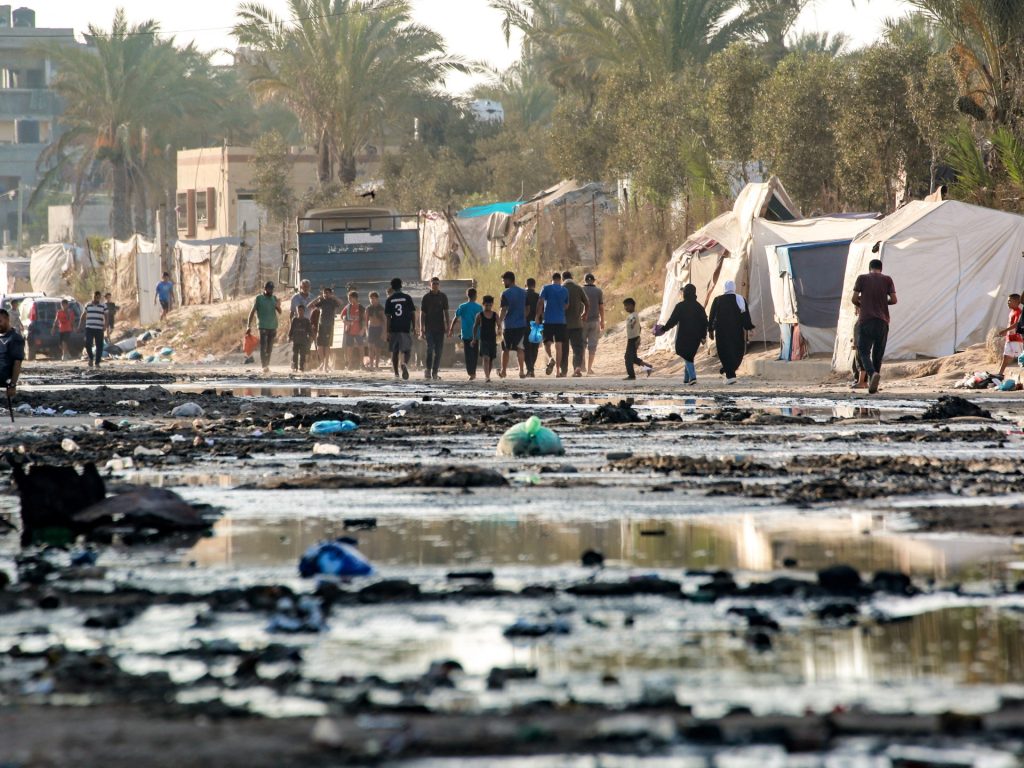Gaza’s Health Ministry has called for “immediate intervention to stop the attacks and find fundamental solutions” to the health emergency.
The Gaza Ministry of Health Polio epidemic Beyond the Palestinian enclave, Israel devastating military attack This is to prevent the spread of the deadly virus.
The situation “poses a health threat to the residents of the Gaza Strip and neighboring countries,” the ministry said in a statement to Telegram on Monday, the latest sign of the worsening public health emergency caused by Israel’s genocidal war since October.
The ministry called the outbreak a “setback” for the Global Polio Eradication Initiative and called for “immediate intervention to end the epidemic.” [Israeli] It calls for an “end to attacks and finding fundamental solutions” to problems such as a lack of drinking water and personal hygiene, a destroyed sewerage network and the removal of huge amounts of garbage and solid waste.
Polio is a highly contagious virus that spreads primarily through fecal-oral transmission and invades the nervous system, causing paralysis. Since 1988, mass vaccination campaigns have reduced polio cases worldwide by 99 percent, and efforts to eradicate the disease are ongoing worldwide.
Earlier this month, Gaza’s Ministry of Health, working with UNICEF, announced it had detected “components of poliovirus type 2” in sewage that it said had “collected between the tents of displaced persons.”
The densely populated Gaza Strip is already suffering from a shortage of drinking water and is at risk of being contaminated by the virus.
The World Health Organization (WHO) said on Friday it would send more than one million doses of polio vaccine to Gaza to be administered in the coming weeks to prevent infection among children after the virus was detected in sewage samples.
The Israeli army has announced that it will begin providing polio vaccines to soldiers in the Gaza Strip, citing evidence of “components of poliovirus type 2.”
Israel’s Gaza War Sewer and water systems have been damaged or destroyed, causing sewage to overflow onto the streets near camps for displaced Palestinians.
Last week, the United Nations reported detections of the poliovirus, as well as widespread increases in cases of Hepatitis A, dysentery and gastroenteritis as sanitary conditions in the Gaza Strip deteriorate.
“This is just the beginning of the wave of disease the Gaza Strip will face,” said Al Jazeera’s Hind Khoudary, reporting from Deir al-Balah in central Gaza.
“Palestinians are living in makeshift tents with no toilets, no sanitation and no access to water or sanitation. Sewage is everywhere,” she said.
In an interview with Al Jazeera earlier this month, paediatric intensive care physician Dr Tanya Haji Hassan said the presence of poliovirus in sewage was a “ticking time bomb”.
“Usually when you have a polio patient, you isolate them, make sure they use an unused toilet, keep them away from other people, [but] “That’s impossible,” she said.
“Right now, we have people gathered in refugee camps who have not been vaccinated for at least the last nine months, including children who would have been vaccinated against polio, adults who should have been given booster vaccinations during an outbreak, and health workers.”


